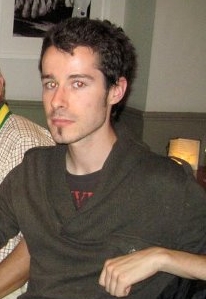 The Centre for Music Studies is delighted to welcome Dr Shay Loya as a member of academic staff.
The Centre for Music Studies is delighted to welcome Dr Shay Loya as a member of academic staff.
Shay taught at the University of Durham before joining City. He received his BA (2000) and MA (2001) from Tel Aviv University and a PhD (2006) from King’s College London, plus a few awards that ‘made his life easier’. His PhD thesis, entitled ‘The Verbunkos Idiom in Liszt’s Music of the Future’, was about the modernist and crossover aspects of Liszt’s Hungarian-Gypsy (verbunkos) musical style, as well as its problematic reception history. Several articles, research papers and reviews followed, culminating in the monograph Liszt’s Transcultural Modernism and the Hungarian-Gypsy Tradition (Rochester: University of Rochester Press, 2011).
Shay’s most recent papers presented in international conferences in England, the US and Canada deal with issues of Gypsy-band transcription as cultural practice (an article version of which is presently being prepared), the paradox of modernist folklorism in late nineteenth-century Hungarian composition, and issues of exoticism and auto-exoticism in Ferenc Erkel’s Hungarian national opera. Apart from Liszt, he is broadly interested in issues of exoticism, nationalism, modernism, transculturation and its application to music analysis, and bridging the knowledge gaps between the musicological disciplines.
Shay’s undergraduate modules at City will include ‘Investigating Western Music 1’, ‘The Classical Style: Music, Aesthetics, Society’, as well as supervision of Major Projects. He is also coordinating the MA module ‘Critical Readings’, contributing to ‘Performance as Research’ and involved in performance (he sometimes plays the piano too).
Shay co-organised the international conference Tonality in Perspective (King’s College London, 27-29 March 2008), which attracted prominent analysts and theorists. He is also the Society for Music Analysis’s information officer, and in that capacity will soon blog about an important SMA event this week (21-22 September).






